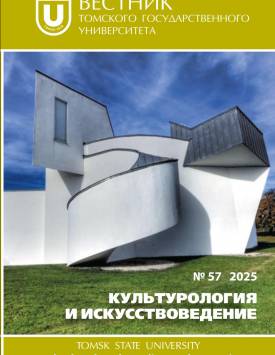Ethical categories of memory discourse: between humanism and biopolitics
The article is devoted to a comparative analysis of interpretative strategies and methodological research principles of ethical and legal and ethical categories of memory discourse in the works of P. Ricreur and G. Agamben. The key feature of Ricreur's interpretative strategy applied to the study of memory and related phenomena is that the research is carried out within the framework of a classical and humanistic understanding of the subject as a wholeness, indestructible even in numerous situations of its non-recognition by others. Relying on the philosopher's hermeneutics of the “self’ with its central concept of the “human being who can” and on the philosophical concept of intersubjectivity, Ricreur formulates a corresponding methodological principle involving a demonstration of “the possibility of transition from the idea of individual capacities to the idea of social capacities”. This transition opens up the space to explore the moral and socio-political aspect of responsibility, forgiveness and testimony. The destruction of subjectivity as the limit case of non-recognition by others clearly goes beyond this humanist discourse. This conclusion is supported in particular by the fact that Ricreur's analysis of testimony stops where Agamben's analysis begins, which is a study of the testimonies of survivors of the Nazi death camps. According to Agamben, the concentration camp has proved that impossible - the total destruction of the subject - is achieved. Due to this fact, the traditional interpretation of the ethical categories of the memory discourse turns out to be unacceptable. Thus, the classical (shared by Ricreur) interpretation of testimony links the latter to the concepts of responsibility and trust, thus emphasizing its intersubjective and ethical aspect. Agamben, on the other hand, describes testimony as a fact of ontological rupture generated by the action of the biopolitical machine: being a witness means “being a subject of desubjectivation”. The appeal of both philosophers to concepts of religious discourse demonstrates the insufficiency of ethical categories to describe the historical experience of humankind. Here, too, significant differences between the two are evident. Ricreur's eschatology is a projection of the finite horizon of human history, guided by the Christian “spirit of forgiveness” towards a peaceful state. By contrast, for Agamben, history has no telos, which reveals its soteriological power in the possibility of taking a position of remnant and the possibility of testifying. The author declares no conflicts of interests.
Keywords
memory, collective memory, responsibility, forgiveness, testimony, subject, biopolitic, P. Ricreur, G. AgambenAuthors
| Name | Organization | |
| Medvedeva Tatiana A. | Siberian State Medical University | tatalmed2112@mail.ru |
References

Ethical categories of memory discourse: between humanism and biopolitics | Tomsk State University Journal of Cultural Studies and Art History. 2025. № 57. DOI: 10.17223/22220836/57/7
